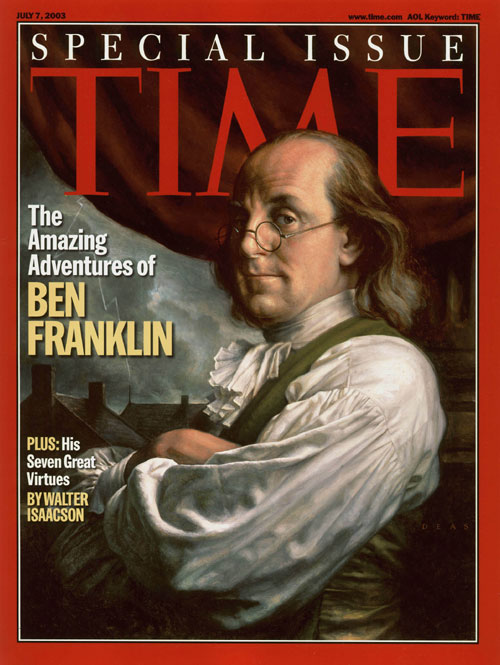 • I don’t often write liner notes nowadays, but I’m making an exception for Hep Records‘ latest project, an eagerly awaited two-CD set that will contain, among other things, the complete recordings of the Alec Wilder Octet, which were originally released on 78 and since then have never been reissued in their entirety.
• I don’t often write liner notes nowadays, but I’m making an exception for Hep Records‘ latest project, an eagerly awaited two-CD set that will contain, among other things, the complete recordings of the Alec Wilder Octet, which were originally released on 78 and since then have never been reissued in their entirety.
If you don’t know who Wilder was, you might want to take a look at this piece, which I wrote for the New York Times Book Review in 1996. If you’ve never heard any of his octet recordings, I suggest that you listen to A Debutante’s Diary, the group’s 1939 recording debut, which will give you a very clear idea of what it sounded like.
I’ll let you know when the Hep set is available. I can’t recommend it too strongly.
• The Winter Park Institute of Rollins College, my sometime home away from home in central Florida, has invited me to spend another month-long stint as a scholar in residence next February. I plan to engage in various public activities while I’m in Winter Park, of which this lecture will likely be the most spectacular. In addition to talking about Duke Ellington and his legacy, I’ll be accompanied by a hand-picked big band that will play selections from the master’s oeuvre. Mark your calendar!
• Paul Moravec and I are hard at work on The King’s Man, our third opera, which opens at Louisville’s Kentucky Opera on October 11. I recently took time out from revising the libretto to write a short program note for the premiere. I thought it might interest you.
* * *
Everybody in America knows who Benjamin Franklin was, more or less, and most people even have a pretty good idea of what he looked like. But William Franklin, Ben’s illegitimate son, is known only to those who are well read in American history, even though the story of his stormy relationship with his famous father is a fascinating and disturbing tale. Unlike Ben, William was a Tory who chose to remain loyal to King George III throughout the Revolutionary War, a decision that got him tossed into prison and nearly cost him his life. It also led to a permanent break between father and son, who saw each other only once more after William fled to England in 1782. Their final meeting, and the complicated events that led up to it, are what The King’s Man is about.
 Paul Moravec, my operatic collaborator, has long been fascinated by Ben Franklin, so much so that he composed a piece called Useful Knowledge that is based on his writings. When we decided to write a companion piece to Danse Russe, our second opera, a backstage comedy about the making of The Rite of Spring, Paul suggested that we might look to Franklin as a possible subject. It soon became clear to both of us that Ben’s break with William was not just dramatic but positively operatic. While my libretto is a fictionalized account of their quarrel that takes liberties with the facts, it is firmly rooted in historical truth. To be sure, we don’t know all that much about the particulars of the two men’s relationship–neither one of them left behind anything like a frank account of how they felt about one another–I think the way that we portray them in The King’s Man is entirely plausible. Few things, after all, are as fraught with tension and resentment as the relationship between a father of genius and a son who is merely talented, and that is what Paul and I have sought to explore.
Paul Moravec, my operatic collaborator, has long been fascinated by Ben Franklin, so much so that he composed a piece called Useful Knowledge that is based on his writings. When we decided to write a companion piece to Danse Russe, our second opera, a backstage comedy about the making of The Rite of Spring, Paul suggested that we might look to Franklin as a possible subject. It soon became clear to both of us that Ben’s break with William was not just dramatic but positively operatic. While my libretto is a fictionalized account of their quarrel that takes liberties with the facts, it is firmly rooted in historical truth. To be sure, we don’t know all that much about the particulars of the two men’s relationship–neither one of them left behind anything like a frank account of how they felt about one another–I think the way that we portray them in The King’s Man is entirely plausible. Few things, after all, are as fraught with tension and resentment as the relationship between a father of genius and a son who is merely talented, and that is what Paul and I have sought to explore.
The King’s Man was specifically written to be performed in tandem with Danse Russe. Yes, Danse Russe is a giddy farce with touches of tenderness and The King’s Man is a dark domestic drama, but both works are one-act historical operas of similar length that are performed by the same vocal and instrumental forces. We hope they add up to a satisfying night at the theater–one that is both entertaining and thought-provoking.
Archives for 2013
TT: Just because
The climactic showdown between Randolph Scott and Lee Marvin, from Budd Boetticher’s Seven Men From Now. The script is by Burt Kennedy and the score is by Henry Vars:
(This is the latest in a series of arts-related videos that appear in this space each Monday and Wednesday.)
TT: Almanac
“Power is not a means, it is an end. One does not establish a dictatorship in order to safeguard a revolution; one makes the revolution in order to establish the dictatorship. The object of persecution is persecution. The object of torture is torture. The object of power is power.”
George Orwell, Nineteen Eighty-Four
TT: A case of critical malpractice
In today’s Wall Street Journal drama column I report on two important revivals in New York and Massachusetts, the Mint Theater Company’s A Picture of Autumn and Barrington Stage’s On the Town. Here’s an excerpt.
* * *
 If you’ve ever wondered how much damage a drama critic can do, consider the case of N.C. Hunter. In the Fifties he was one of England’s best-known playwrights, the author of school-of-Chekhov domestic dramas of middle-class loss and uncertainty that embodied the nagging anxieties of postwar audiences. Then Kenneth Tynan went to work on him with a rubber hose, sneering at “the vacuity of [his] attitude towards life” and dismissively comparing him to the angry-young-man playwrights like John Osborne whom Tynan saw as the salvation of British theater. Result: Hunter’s plays slipped from sight. The Mint Theater Company’s Off-Broadway revival of “A Picture of Autumn” is one of a bare handful of Hunter productions to be presented in this country since “A Day by the Sea” was seen on Broadway in 1955.
If you’ve ever wondered how much damage a drama critic can do, consider the case of N.C. Hunter. In the Fifties he was one of England’s best-known playwrights, the author of school-of-Chekhov domestic dramas of middle-class loss and uncertainty that embodied the nagging anxieties of postwar audiences. Then Kenneth Tynan went to work on him with a rubber hose, sneering at “the vacuity of [his] attitude towards life” and dismissively comparing him to the angry-young-man playwrights like John Osborne whom Tynan saw as the salvation of British theater. Result: Hunter’s plays slipped from sight. The Mint Theater Company’s Off-Broadway revival of “A Picture of Autumn” is one of a bare handful of Hunter productions to be presented in this country since “A Day by the Sea” was seen on Broadway in 1955.
Never having seen or read a Hunter play, I was curious to find out whether he deserved Tynan’s abuse. Not a bit of it: “A Picture of Autumn” is impressive in every way, and the Mint’s staging, directed with quiet intelligence by Gus Kaikkonen and acted by a top-drawer ensemble cast, is so strong that in a perfect world it would trigger a general revival of interest in Hunter’s work.
Written and set in 1951, “A Picture of Autumn” is a group portrait of the Denhams, a trio of cash-strapped aristocrats (Jonathan Hogan, George Morfogen and Jill Tanner) who live in a moldering country house that they can no longer afford to keep up. All of them are growing frail and one is on the brink of senility. The oldest son (Paul Niebanck), a civil servant who has put his upper-class ways behind him, longs to move them into a modern flat, but the family’s memories of “the old days, when we had cooks and things” remain so vivid that they can’t imagine leaving.
In 1951 “A Picture of Autumn” was received by British playgoers as a study of a once-privileged class in decline. Six decades later, Americans who are trying to figure out how best to care for their own parents are more likely to give it an up-to-date spin. Either way, the Denhams’ plight is stingingly bittersweet…
 “On the Town” made stars out of Leonard Bernstein, Betty Comden, Adolph Green and Jerome Robbins when it opened on Broadway in 1944, running for 462 performances. They stayed famous–but the show didn’t. It’s never been successfully revived in New York, nor does it get done regionally save on rare occasions. So I’m thrilled to report that Barrington Stage is putting on a production directed by John Rando (“All in the Timing”) that is more than exciting enough to make you scratch your head in puzzlement. How could so exhilarating a musical have slipped through the cracks?…
“On the Town” made stars out of Leonard Bernstein, Betty Comden, Adolph Green and Jerome Robbins when it opened on Broadway in 1944, running for 462 performances. They stayed famous–but the show didn’t. It’s never been successfully revived in New York, nor does it get done regionally save on rare occasions. So I’m thrilled to report that Barrington Stage is putting on a production directed by John Rando (“All in the Timing”) that is more than exciting enough to make you scratch your head in puzzlement. How could so exhilarating a musical have slipped through the cracks?…
“On the Town” doesn’t work without very well-made choreography, and Joshua Bergasse, who staged the dances for “Smash,” delivers the goods in abundance. Though some of his moves are explicitly Robbinsesque, the comic numbers are fresh enough to make you wonder why his work has yet to be seen on Broadway. Mr. Rando is, of course, universally and deservedly admired–he directed the brilliant “Guys and Dolls” that Barrington Stage mounted two years ago–and the members of his youthful cast, especially Deanna Doyle, Alysha Umphress and Tony Yazbeck, collectively slam it out of the park….
* * *
Read the whole thing here.
Highlights from Barrington Stage’s On the Town:
TT: Almanac
“Every year fewer and fewer words, and the range of consciousness always a little smaller.”
George Orwell, Nineteen Eighty-Four
TT: Pulling the plug
David and Kathy, my brother and sister-in-law, recently moved into 713 Hickory Drive, the house in Smalltown, U.S.A., where my mother spent the last half-century of her life, and they’re now well into the lengthy process of remodeling the interior. Needless to say, they do so with my blessing. My mother’s house was run down at the time of her death last spring, and it needed exactly the kind of loving care that my brother, who is the handiest of handymen, knows how to supply.
 Just the other day Kathy sent me a link to an online album of some three hundred-odd snapshots showing David hard at work on 713 Hickory Drive. I haven’t been back to Smalltown since my mother’s funeral, and I was thrilled to see the step-by-step transformation of the house into an up-to-date residence more perfectly suited to the needs of its happy new occupants. While I felt an occasional pang of sentiment as I looked at the pictures–after all, I grew up there–it’s far more important to me to know that David and Kathy want not merely to keep the house in the family but to bring it back it to life.
Just the other day Kathy sent me a link to an online album of some three hundred-odd snapshots showing David hard at work on 713 Hickory Drive. I haven’t been back to Smalltown since my mother’s funeral, and I was thrilled to see the step-by-step transformation of the house into an up-to-date residence more perfectly suited to the needs of its happy new occupants. While I felt an occasional pang of sentiment as I looked at the pictures–after all, I grew up there–it’s far more important to me to know that David and Kathy want not merely to keep the house in the family but to bring it back it to life.
Strange as it may sound, it hit me harder when I dialed my mother’s old phone number the other day and found that it had finally been disconnected. I’ve dialed that number thousands of times. It was in service for longer than I’ve been alive. It was on the phone that I last heard my mother’s voice, and I’m still getting used to the knowledge that I’ll never hear it again.
I wonder how long I’ll remember her number. Probably for the rest of my own life, since I have an unusually retentive memory. It’s amazing–and dismaying–how much useless information is firmly crammed into my well-stuffed head. Sometimes a good memory is a blessing, sometimes a curse, but most of the time it’s just there, taking up space. Why on earth should I know who Richard Dimbleby or Amy Denovo or Henry Vars were? Yet I do, together with countless other dusty fragments of fact that I’m able to retrieve far more readily than, say, the phone numbers of any of my present-day friends.
 At any rate, I expect I’ll go to my grave knowing that the Teachout family’s phone number was 471-3319 (formerly GR1-3319). No doubt I’d do better to know any number of more useful things, but usefulness, like goodness, has nothing to do with it. In the words of the contestants in The 25th Annual Putnam County Spelling Bee, Life is random and unfair/That’s the reason we despair/Life is pandemonium.
At any rate, I expect I’ll go to my grave knowing that the Teachout family’s phone number was 471-3319 (formerly GR1-3319). No doubt I’d do better to know any number of more useful things, but usefulness, like goodness, has nothing to do with it. In the words of the contestants in The 25th Annual Putnam County Spelling Bee, Life is random and unfair/That’s the reason we despair/Life is pandemonium.
All that’s certain–at least in my case–is that I will always be able to go back to the house where I grew up and be greeted with open arms, even if I can’t find my way around the kitchen anymore.
* * *
“Pandemonium,” as performed by the original cast of The 25th Annual Putnam County Spelling Bee:
TT: So you want to see a show?
Here’s my list of recommended Broadway, off-Broadway, and out-of-town shows, updated weekly. In all cases, I gave these shows favorable reviews (if sometimes qualifiedly so) in The Wall Street Journal when they opened. For more information, click on the title.
BROADWAY:
• Annie (musical, G, some performances sold out last week, reviewed here)
• Matilda (musical, G, all performances sold out last week, reviewed here)
• The Nance (play with music, PG-13, closes Aug. 11, some performances sold out last week, reviewed here)
• Once (musical, G/PG-13, most performances sold out last week, reviewed here)
• The Trip to Bountiful (drama, G, closes Sept. 1, reviewed here)
• Vanya and Sonia and Masha and Spike (comedy, PG-13, remounting of off-Broadway production, closes Aug. 25, most performances sold out last week, original production reviewed here)
OFF BROADWAY:
• Avenue Q (musical, R, adult subject matter and one show-stopping scene of puppet-on-puppet sex, reviewed here)
• The Fantasticks (musical, G, suitable for children capable of enjoying a love story, reviewed here)
• The Weir (drama, PG-13, closes Aug. 4, reviewed here)
CLOSING NEXT WEEK IN WASHINGTON, D.C:
• The Real Thing (drama, PG-13, adult subject matter, closes July 7, reviewed here)
CLOSING NEXT WEEK OFF BROADWAY:
• Far From Heaven (musical, PG-13, adult subject matter, closes July 7, reviewed here)
CLOSING SATURDAY IN WESTPORT, CONN.:
• The Show-Off (drama, G/PG-13, reviewed here)
CLOSING SUNDAY IN ARLINGTON, VA.:
• Company (musical, PG-13, adult subject matter, reviewed here)
CLOSING SUNDAY IN RED BANK, N.J.:
• Present Laughter (comedy, PG-13, adult subject matter, reviewed here)
TT: Almanac
“In our time, political speech and writing are largely the defence of the indefensible.”
George Orwell, “Politics and the English Language”
